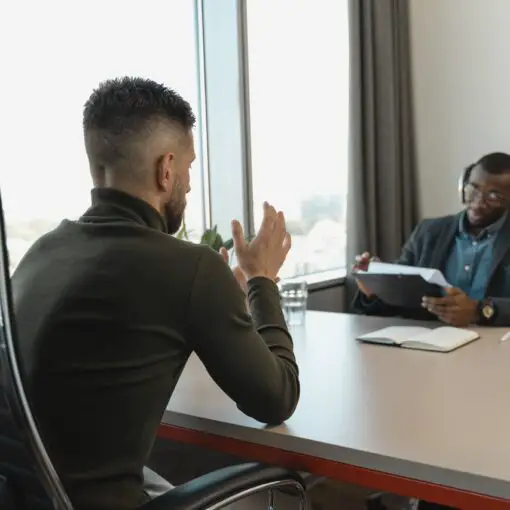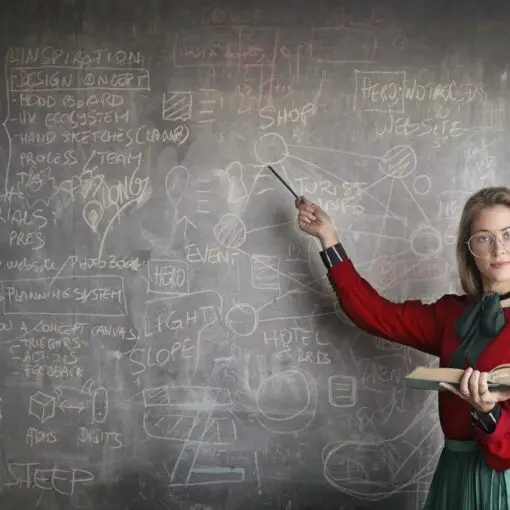Shelter, food, clothing, and water – these are usually considered as the most important necessities to live decently and sufficiently. In order to acquire these in a sustainable and efficient manner, a person needs education.
Sadly, we are still at the stage wherein our society still understates the importance of both logic and critical thought, which can only be acquired through sufficient and high-quality education, in sustaining our daily needs effectively.
Logic leads to critical thought. It is important for any learner to master logical reasoning first and use it as a foundation to acquire the much-coveted skill of critical thought.
Logic and critical thinking make up the two sides of one coin, but essentially, they are not identical notions.
Logical Reasoning – Importance, Definition, and Practical Applications
Arguments are so easy to create – everyone has an opinion on everything. However, not every argument is backed up with good reasons – not everything we come up with is logical.
Logic is a basic skill, yet quite difficult to master. For over a thousand years, it has been formally a branch of philosophy, but still filled with mystery. Logic as a field of study has reached unparalleled milestones, however, only a fraction of these can be considered as practical. It has become a foundation of mathematics, semiotics, and even computer programming, but in this portion, the aim is to dwell on the more pragmatic side of logic.
As a process, logical reasoning can be defined as one that uses different premises in order to formulate a conclusion. Some may put it simply as “if X and Y, then Z”. Most situations and problems we encounter everyday can be approached this way. One simple test to verify its validity is by asking “does it make any sense?”
Sequence matters is logical thought. Facts, ideas, and conclusions should be ordered in a progression similar to that of a chain so that everything flows to the meaning intended to be communicated. Thinking in terms of steps is said to be the way of a logical thinker.
Learners are equipped by logic in such a way that they gain knowledge from what they have been shown or taught. Also, they can take inspiration from what they read or what they have been told. Piecing together the facts from these bits of inspiration requires guidance, of course. But in the end, logical thinking aspires to create independent thinkers who can draw conclusions for themselves.
What formal education lack nowadays is the rigorous training in logic. Logical thinking empowers individuals to come up with their own thoughts, to question the level of validity of each hypothesis they encounter and to propose alternative streams of thought. Ultimately, logic teaches individuals use facts gathered to test the hypothesis, as well as the alternatives.
Logic does not necessarily make people smarter. It merely makes them feel uncomfortable with the idea of answering “I don’t know” to any question. Logical thinkers believe that there is a way of revealing acceptable answers based on the knowledge they have at hand.
Critical Thinking – Cornerstone of Civilization’s Achievements
On the other hand, critical thinking is a gift resulting from logical reasoning. It is commonly applied to ascertain if a certain claim or belief holds water. In our world, there are different reasoning patterns and it is important to be able to analyze, identify, and evaluate each to see if there are any faults or flaws.
A critical thinker goes beyond logic – they question usual authorities like their own judgment and perception. They do not rely merely on the power of the media, experts, and even the authorities. But it is important to point out that critical thought is not possible without logical reasoning. Logic is the pre-requisite before one can truly become critical.
If a person is equipped with critical thought, he/she is more likely to come up with sound and reliable beliefs. The usual obstructions to critical thought – like wishful thinking, lack of independence of thought, imposed ideologies, and dogma – can be easily identified and ignored.
Without critical thinking, fields of expertise like philosophy, democracy, and even science, would be impossible to conceive. Without critical thought, human beings will not push themselves outside their comfort zone – remaining where they are and only thinking about survival and nothing else higher or more ambitious.
A critical thinker goes beyond logic in identifying obstructions, because there are elements that are difficult to detect with logical reasoning alone. Take emotions as an example. Usually, emotions are used to mislead people because it can be very effective in terms of persuasion. A critical person can effectively weigh it out even when distracted by the noise created by emotions.
Also, critical thinking can aid in detecting social and cognitive biases, as well as fallacies. These can also be considered as distractions because they can be surprisingly persuasive and appealing, and they can take logical forms.
Mastery of critical thought leads to effective management of knowledge.
Logical Reasoning v. Critical Thought – In a Nutshell
Logical thinking and reasoning refer to the capability to formulate thoughts in a scientific, normative, and sound manner. This can also be defined as the process of utilizing methodical, efficient, and rational series of steps based on well-established theories, conjectures, and premises leading to the formulation of a conclusion.
On the other hand, critical thought can be defined as a step-by-step process of taking in relevant information or data and doing a skillful and open-minded assessment to judge what truly holds water. What follows are applications, analysis, synthesis, and evaluation of information based off a person’s experience, observation, communication, and reasoning to come up with a well-founded action and belief template.
One cannot go without the other; and, it is still open for debate if logical reasoning follows critical thought, or is it the other way around?
It is challenging to stay along the lines of logical reasoning and critical thought. It requires constant and persistent practice so that you can effectively assess, analyze and judge not only the thoughts of your peers, but also those of your own.





